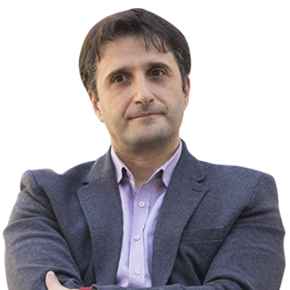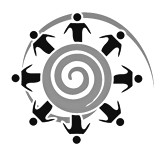The first part of the series - Strong and flexible economy should become our only ideology
I was 18 when we won the war in 1994. I have lived all my adult life as a citizen of a victorious country. Until November 10, 2020, when we woke up in another country. I think it is possible to draw certain parallels with the feelings our parents had when the Soviet Union collapsed: in 1991 my mother was younger than I am now.
I have attended various international conferences several times over the past 20 years the participants of which were from the countries of the Black Sea region. Often one of the topics was the identity crisis the post-Soviet countries, like Ukraine or Moldova, were going through. I remember that during those discussions I was always telling to myself how good it is that at least we do not have an identity problem. Now it is difficult to say whether we really did not have such problem and got it only after the 2020 defeat or we had it but concealed from ourselves.
Coming to the idea with which I concluded the first part of the series – whether after the 1994 victory we formulated the vision we should have continued to live with, and, viewing the victory as a basis, started building new floors on it. I think what we were doing was just emotional. We were proud to say that 90 years after the Genocide, we not only didn’t allow ourselves to be massacred again, but we won and occupied territories. Of course, we should have enjoyed it, but reasonably and stop in time. We did not succeed, and as a result we did not formulate what we want and where we are going.
Let’s imagine that a person wanted to emigrate from Armenia before the war or wants to do it today. He is well-off, has no social problems, simply, as it is used to say among some, he “does not see a future” in Armenia. If we try to change this person’s mind what counter-arguments will we bring? Yes, love for the homeland is sacred but for many it is not the only criteria and it is normal. But we’ll get to that.
We have formally formulated – we were saying that Artsakh would never be part of Azerbaijan – it should either be independent or reunite with Armenia. But we did not go a step further and did not try to understand what our vision would be if we achieved that goal. Let’s imagine that a miracle would happen and Aliyev would agree to the self-determination of the Artsakh Armenians and would accept the outcome of the referendum.
Would we be ready in such case to discuss the issue of territories outside the borders of the former NKAO or would we be guided by the saying “appetite comes with the eating?” If this conditional miracle happened and we somehow found the edges of coexistence with Azerbaijan and Turkey, what would the ideology of our further development be? It’s not that I have the answer to the question or I thought about it until November 10, 2020.
Now, let’s imagine that we are forming a more or less acceptable coexistence with Azerbaijan and Turkey after the 2020 defeat, in fact, with the agenda imposed on us, and then?
For many years we lived in the regime of besieged fortress though the political leaders preferred not to talk about it. By the way, I wrote about the besieged fortress in seemingly very distant 2014, and the reader may be interested to view it in the light of the 2020 defeat.
Probably, one of the reasons of not speaking about it was that no fortress is able to resist besiege forever. Either you force the besiegers leave or you get exhausted and lose.
Vigen Sargsyan, who brought the idea of nation-army to the agenda after being appointed minister of defense in 2016, tried to transform the idea of the besieged fortress. However, that concept did not have enough time to live its life, crystalize and become a consensus: the year 2018 came.
While speaking about concepts and visions we often forget that most people are not “ideological fighters” and are guided by simpler, if you will, everyday approaches. You can not expect self-sacrifice from everyone, literally or figuratively, especially when people really suffered numerous social deprivations for decades.
I will go back to the topic of public transport about which I wrote in the first part. We did not give a teacher receiving ridiculous salary for decades an opportunity to reach home in normal conditions at least in the evening and not be squeezed and bent in the minibuses. What ideological approach did we expect from the people after failing to ensure minimal conditions for them for decades and conditioning their absence with unresolved Nagorno-Karabakh conflict?
One of the most serious problems is that on one hand we have huge ambitions (which we cannot satisfy due to lack of money, see the first part), on the other, we are drowning in complexes. We proudly say that we are the descendants of Tigran the Great or Ashot the Iron but we fell into “calf joy” when a famous foreigner says or writes something good about us. Such posts can collect tens of thousands of likes and shares in a few hours. If we have such powerful ancestors why are we longing for praise from a stranger so much? Perhaps, the explanation is that we refuse to understand that a powerful past is not a guarantee of a powerful present and future.
We lost also because we considered the history as a guarantee and made it an integral part of current political process. We began having ambitions for the realization of which we had neither material nor human and intellectual resources.
We must remove the conditional Tigran the Great or Ashot the Iron from today’s political process or discussions. I will not afraid to put it in this way – we should temporarily forget about them and remember only when we deserve it. Maybe in that way we can finally get rid of the attempts to turn the past into the future bypassing the present.
I don’t offer to start from zero or from a blank page, though it might be helpful as well. I was talking to Rev. Father Mesrop recently, and he said something interesting – our last great thinker on global scale was Grigor Tatevatsi who died in 1409.
Instead of Tigran the Great, we should remember Tatevatsi or Narekatsi and maybe in this way we will be able to formulate our vision of the future to become the creators of values that all humanity needs.
I think we push ourselves into the trap when we try to find beautiful and symbolic names – “fourth republic”, “Armenian dream”, “Armenian world”. Form wins content, as a result, we get vain dreams. In November 2017, Serzh Sargsyan pushed forward the idea of increasing the Armenian population up to 4 million by 2040, and in August 2019 Nikol Pashinyan “raised the bet”, proposing to increase the Armenian population up to 5 million by 2050. In both cases the proposals were not substantiated by calculations or a clear program.
If Sargsyan stopped at 4 million, Pashinyan spiced his speech with a number of insanities (“to have at least five Armenian technology companies worth more than $10 billion”, “to have one of the ten most effective intelligence services in the world”, etc.). By the way, this was the speech in which Pashinyan said that “Artsakh is Armenia and that’s it.”
“Beauty”, symbolism and pathos must be thrown aside. You have to work hard and focus on creating value, uniting all possible forces, being on the way to achieving tough and consistent goals.
In the third part of the series of articles we will talk about what we need to do to become more recognizable and understandable to the outside world.
The first part of the series - Strong and flexible economy should become our only ideology
Ara Tadevosyan is Director of Mediamax.























Comments
Dear visitors, You can place your opinion on the material using your Facebook account. Please, be polite and follow our simple rules: you are not allowed to make off - topic comments, place advertisements, use abusive and filthy language. The editorial staff reserves the right to moderate and delete comments in case of breach of the rules.